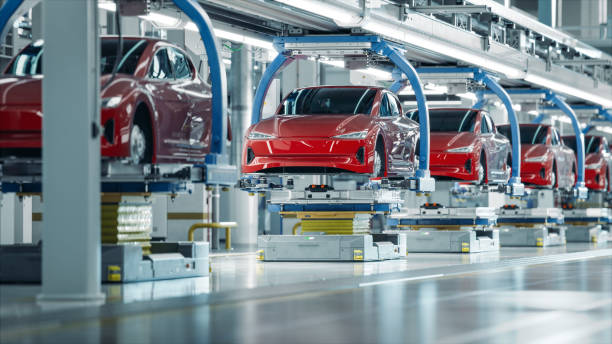
How do car makers create strong and lightweight metal parts?
Precision casting helps shape important car parts with great accuracy. It allows manufacturers to make engines, brakes, and other parts with less waste. This process also helps cars last longer and perform better.
Lighter parts mean better fuel efficiency, which saves money and helps the environment. Many car companies use precision casting to build safer and more reliable vehicles.
As technology improves, this method will remain important in the auto industry. Understanding its role shows why it is key to modern car manufacturing.
Creates Complex Metal Parts
Precision casting helps car makers create detailed metal parts with high accuracy. It allows them to make shapes that other methods cannot produce easily. This is important for parts like engine components, gears, and brake systems.
These parts must fit perfectly for the car to work well. Without precision casting, making such parts would take more time and effort.
This method also helps create lightweight parts without losing strength. Lighter parts make cars more fuel-efficient and easier to handle.
Since precision casting uses molds, each part comes out the same. This makes sure every car has parts that fit and work properly.
Reduces Material Waste
Precision casting helps cut down on wasted metal during manufacturing. The process uses molds that shape metal into exact forms.
This means there is little need for cutting or reshaping later. Less waste means lower costs for car makers and a cleaner environment.
Using fewer materials also helps save natural resources. Metal production takes a lot of energy, so wasting less is important.
Precision casting helps companies use just the right amount of metal. This makes the manufacturing process more efficient and less harmful to the planet.
Improves Fuel Efficiency
Cars need lightweight parts to use less fuel. Precision casting helps make strong yet light metal parts. These parts help cars move more easily and use less energy. This means drivers can save money on gas.
Lighter cars also put less strain on the engine. This helps the engine last longer and perform better. When cars burn less fuel, they release fewer harmful gases into the air.
Enhances Part Durability
Car parts must be strong enough to handle daily use. Precision casting helps create tough and long-lasting metal parts.
These parts can handle high heat, heavy loads, and strong vibrations. This makes cars safer and more reliable.
Stronger parts mean fewer breakdowns and repairs. Drivers do not have to replace parts as often.
This saves time and money in the long run. With precision casting, car makers can build vehicles that last longer and perform better.
Supports Mass Production
Car companies need to make thousands of vehicles quickly. Precision casting helps speed up production.
The process uses molds that create many identical parts at once. This helps factories build cars faster and more efficiently.
Since the parts are always the same, they fit together easily. Workers do not have to spend extra time fixing or adjusting them. This reduces production delays. Precision casting makes it possible for car makers to produce high-quality vehicles on a large scale.
Why Precision Casting Matters
Precision casting helps car makers build strong and reliable vehicles. It creates high-quality metal parts with less waste and more accuracy. This makes cars safer, lighter, and more efficient.
As technology improves, precision casting will continue to shape the auto industry. It helps companies produce better cars for drivers everywhere. With this process, the future of car manufacturing looks even brighter.
For more helpful blog posts like this one, visit the rest of our site!